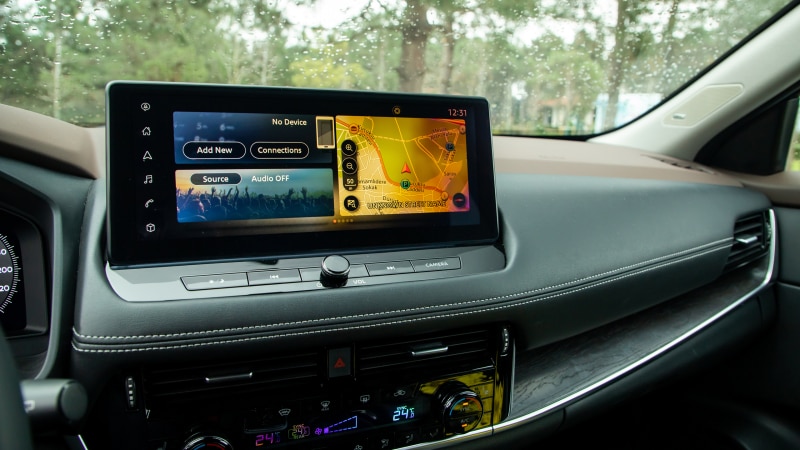What is a salvage title?

When a car is involved in a major accident, insurance appraisers need to determine what to pay for it. When the cost of repairs is greater than the value of the car itself, they write it off as a “total loss” and pay you the car's market value. When this happens, the totaled vehicle receives a salvage title.
Although Chase doesn't offer financing for cars with salvage titles, we'll cover some of the basics so you can help determine if pursuing one is the right choice for you.
How does a salvage title work?
While exact rules around salvage titles vary from state to state, most vehicles that receive salvage titles can’t be driven on public roads. However, just because a car is “totaled” from an insurance perspective doesn’t always mean it’s been reduced to a pile of scrap metal. Sometimes the designation can be a result of less severe conditions like flood or fire damage. Repair enthusiasts may seek these cars out to take on as restoration projects.
Rebuilt title vs. salvage title
A car with a salvage title that receives enough repairs and passes state inspections may be able to get on the road again. In this case, it would need a new title designation — “rebuilt."
State laws around requirements for rebuilt titles can vary quite a bit. In most cases, however, the car must usually pass a state inspection in order to update the title. More stringent states may also require documentation of the repairs that were done.
Potential risks of buying a salvage title
Buying a salvage title (or even a rebuilt one) may be risky if you can’t confirm that the car was properly restored. Here are some of the risks to watch out for:
Potentially unseen damage
A car with a salvage title may have all kinds of damage depending on the nature of the damage or accident it was in. Damage to the exterior body of a car is usually obvious, but strains and cracks on the framework are harder to detect and could pose a serious risk to both car and driver. Even if you’re sure the previous owner knew what they were doing and didn’t cut any corners with repairs, the risk of undetected damage could be ever-present.
Low or no trade-in value
Salvage title cars can be a burden to owners looking to trade them in for different cars. A salvage title typically isn't accepted as a trade-in by most dealerships, because it can be much harder to re-sell to another buyer.
Potential for “title washing”
Legal discrepancies from one state to another regarding salvage titles create gray areas. A car that's considered a salvage title in one state may be eligible to drive in another. This potentially lets bad-faith sellers turn a salvage title into a clean one by registering it in a state with looser requirements. This fraudulent practice is known as “title washing.”
May be challenging to secure financing
Salvage title cars have been totaled from an insurance perspective. It may be challenging to secure financing with a lender if you want to buy one. If you do, it’s likely that you could be charged a high interest rate on your loan.
Proceeding with a salvage title
If you decide to proceed with purchasing a car with a salvage title, it’s helpful to note that it would likely still need extensive work before it can be driven as rebuilt. Consulting with a trusted mechanic is generally good practice for buying a used car but especially so for one with a salvage title. This can potentially give you a better understanding of what you’re getting.
While cars with salvage titles can often be picked up for a bargain compared to an undamaged version of the same car, insurance for rebuilt titles can be a tricky subject, as state laws and individual insurer policies can vary so greatly. In general, coverage for such cars could likely to be harder to obtain.
In summary
So, what is a salvage title? It’s a designation given to any damaged car where the repair cost is equal to or greater than the car’s market value. For some buyers, a salvage title may represent a discounted price on a car that they can take on as a project. However, the risks of unseen damage to the vehicle and the difficulties in insuring or financing these cars could outweigh the potential benefits.



